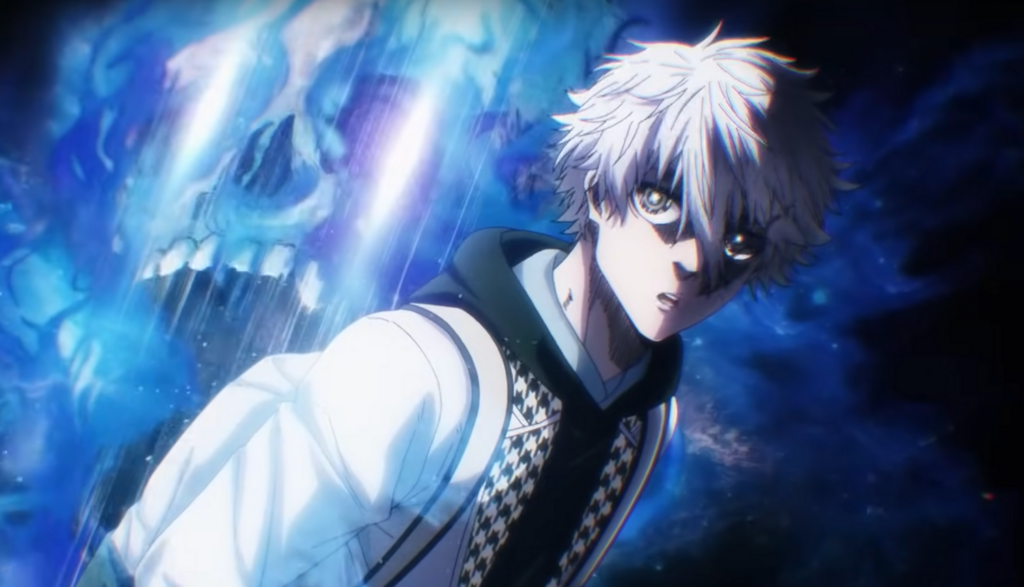
Reo Mikage has it all—but he wants more.
As the heir of a massively successful corporation, there’s never been a thing that Reo couldn’t have. But then he saw the World Cup, and he decided that he wanted to have that trophy, too. His father, for once, told him no … but that only made him want it more. And that’s how the high schooler eventually ended up competing for a striker spot on Japan’s World Cup team.
As for Seishiro Nagi? Well, he wants for nothing.
Correction: He wants to do nothing.
Nagi would be perfectly content spending the rest of his days playing video games and sleeping. If he found a way to live without eating, well, you can be sure he’d not waste any steps getting to the fridge. His laziness truly knows no bounds.
But Reo was the one who saw Nagi’s innate soccer ability when he accidentally bumped into him, sending his video game hurtling towards the floor—until Nagi’s quick footwork prevented the screen from breaking. From there, the two developed a close friendship—the first Nagi’s ever really had. And despite Nagi’s desire to do nothing, he figures he’ll go ahead and honor that friendship by helping Reo pursue his dream.
As it turns out, both Reo and Nagi are naturally really good players. It’s not long before they both catch the eye of the Japanese Football Union and receive invitations to join an exclusive competition—the Blue Lock Project.
Created with the intent to find the best striker in the world, the Blue Lock Project called the top 300 U18 players in Japan to compete for the right to join the next Japanese World Cup team. Get eliminated, and you’ll never be allowed to play on the team in the future. But for the player who makes it to the end, fame and glory await.
For Reo, that’s just what he wants to hear.
For Nagi … well, that sounds like a whole lot of work. But he’ll do it to help his best friend get as far as possible.
Nagi, unsurprisingly, doesn’t really want to play soccer. In fact, he doesn’t feel like doing much of anything. Still, he ultimately chooses to go along with it because he understands that it’ll make Reo happy. And since Reo didn’t give up on the hassle of being Nagi’s friend, Nagi doesn’t want to give up on the hassle of soccer, either.
Throughout the film, characters recognize each other’s talents, and they often work together to overcome their opponents.
Characters get into a zone called “Awakening,” in which they reach new heights in their soccer abilities through stress and trial. When characters achieve this level, they often display an aura—and one man’s aura is likewise paired with flaming-eyed skulls.
As Nagi begins to enjoy soccer, he describes his change as “a moment of rebirth.” Someone yells out “throughout heaven and Earth, I alone am the Honored One,” a quote attributed to Buddha. We hear a reference to karma.
Some characters bathe in a communal bathroom, and we see a couple of their naked rears. Two other men are seen in their underwear. One male character is nicknamed “Princess” and “Missy” due to his effeminate appearance.
Someone hopes to execute a move that’s called “sexy soccer” (we never see what that entails). A man’s nails are painted.
A couple of scenes seem to imply a sense of tension between two male players.
A player takes a ball to the face, resulting in a nosebleed. Another man gets knocked to the ground after being hit with a soccer ball. Someone occasionally yells out that he’ll kill other players.
In the Japanese subtitles, the s-word is used four times. Words such as “a–,” “d–n,” “h—,” “p-ss” and “b–tard” are used often. People are called idiots, and “jeez” is heard once.
None.
In the self-centered pursuit of greatness, someone abandons his teammate. Someone describes other players as slaves and parasites.
Blue Lock: Episode Nagi’s biggest boon is that you don’t need to see the TV show it’s based on to understand what’s going on. Unlike many anime movies, Episode Nagi helpfully explains its central conflict rather than assuming the viewer has been following its TV counterpart.
And that’ll certainly help you decide whether you’d like to watch the show. After all, the 2022 series Blue Lock stars the same characters in the same competition. So, what’s the difference? The two stories are told from the perspectives of different players.
The TV series follows Yoichi Isagi, who frequently appears in this movie counterpart as well. But as this film’s title states, here we see the same conflict, condensed and repackaged through competitor Nagi’s eyes instead.
That means that we see a lot of the same content issues, namely, occasional glimpses of animated naked men from behind and some swearing.
Mostly, however, viewers will watch plenty of animated soccer in this film that runs the same length as a real-life match. And with the pros and cons in mind, viewers will need to decide if Blue Lock: Episode Nagi merits a goal—or if the only thing it’ll earn is a yellow card.


Kennedy Unthank studied journalism at the University of Missouri. He knew he wanted to write for a living when he won a contest for “best fantasy story” while in the 4th grade. What he didn’t know at the time, however, was that he was the only person to submit a story. Regardless, the seed was planted. Kennedy collects and plays board games in his free time, and he loves to talk about biblical apologetics. He thinks the ending of Lost “wasn’t that bad.”